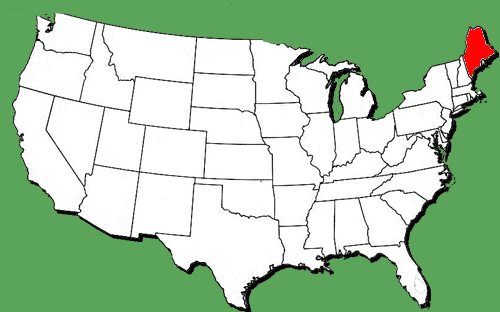
Circle the area on this map

A. Nearly 90 percent of the land is forested and much of it is sparsely populated. Some northern areas of the state average one person for every 100 square miles. But, the hermit lived within 10 miles of a town.
C. Maine is bordered by New Brunswick to the northeast, Quebec to the northwest, New Hampshire to the west and the Atlantic Ocean to the east and south.
D. Inhabited for thousands of years by Native Americans, Maine's first European residents were the French. The English later claimed the territory which was much fought over by the Europeans and allied native Americans. Maine was part of Massachusetts until it voted to secede and became the 23rd state in 1820.
B. The term Acadian eventually evolved into Cajun in Louisiana. Descendants of the expelled colonists mostly speak English with a distinct local Cajun dialect, but some still speak Cajun French which also developed in Louisiana.